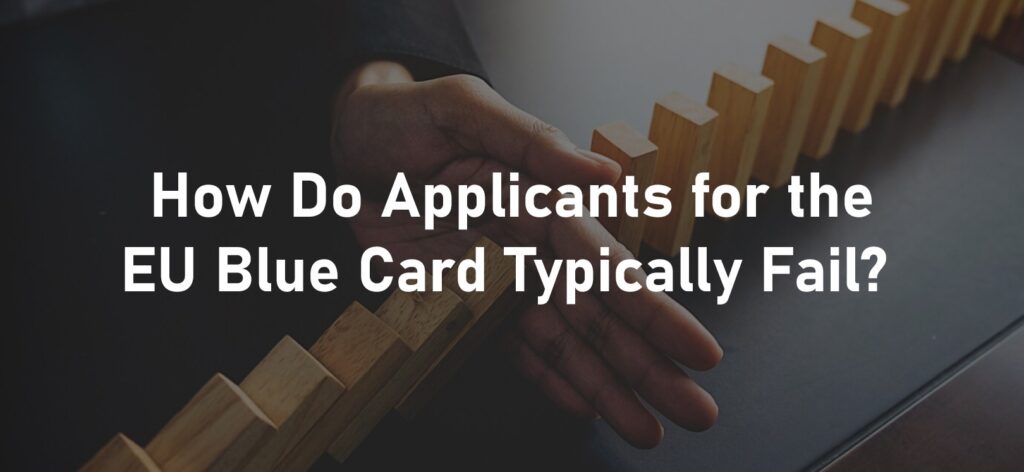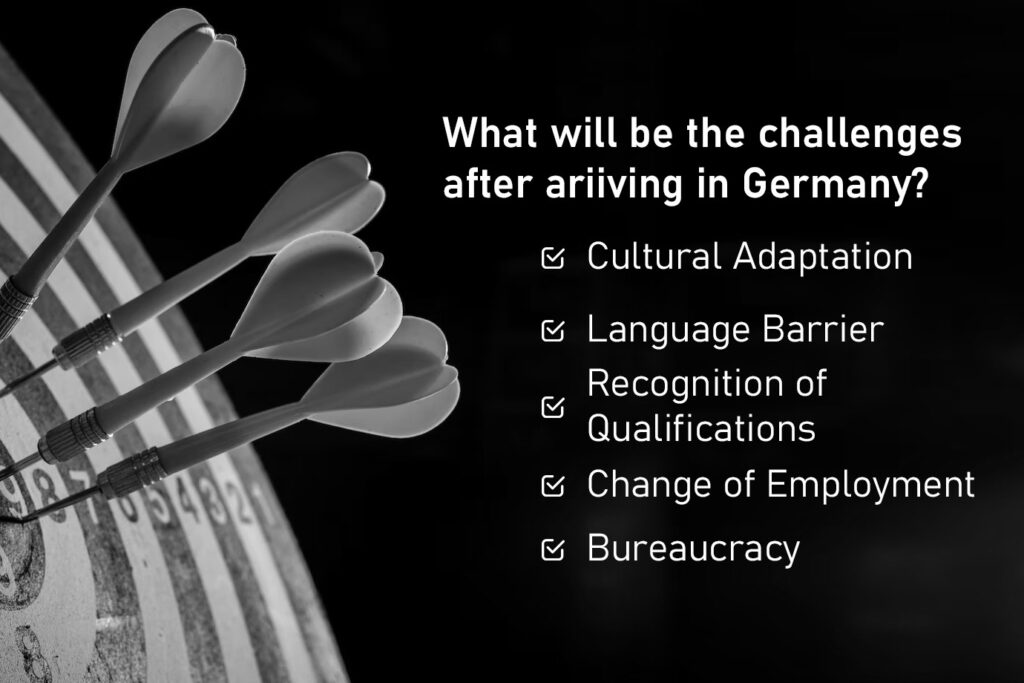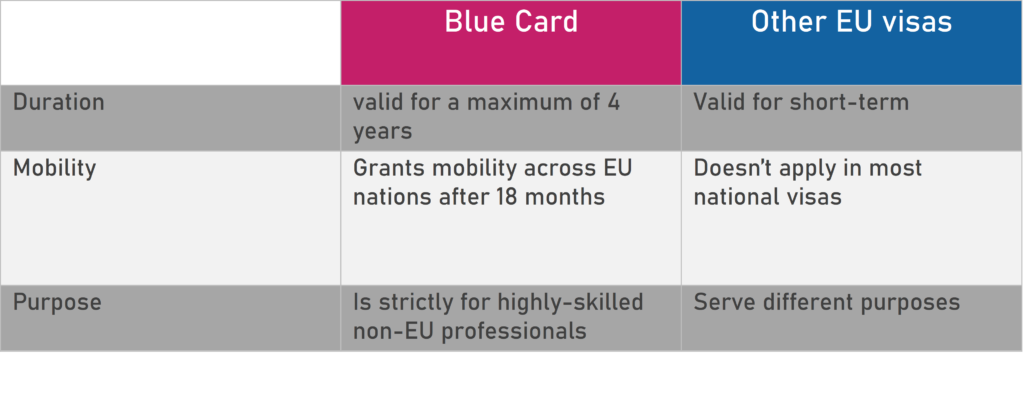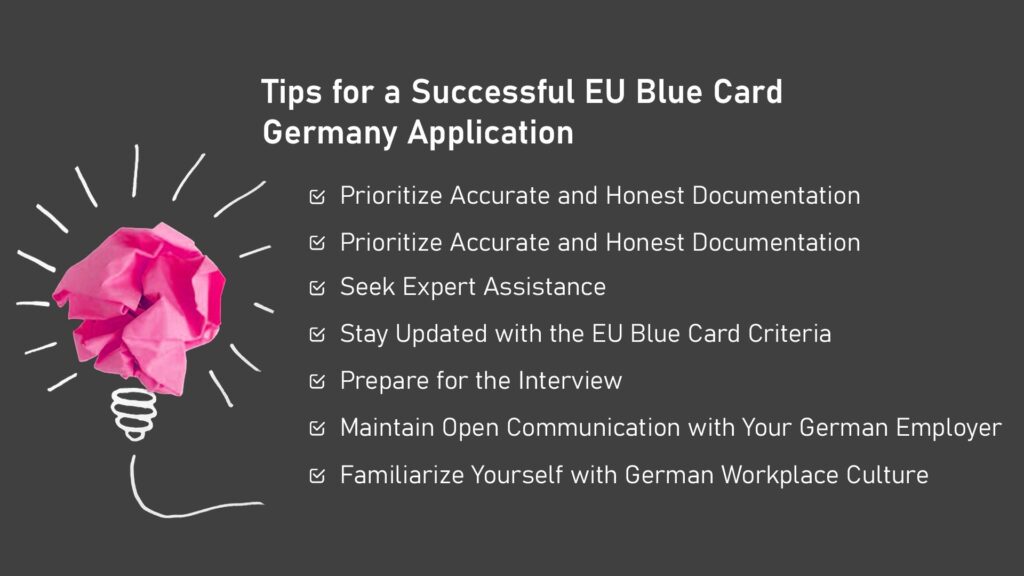The Benefits of the EU Blue Card and the Application Process: An In-depth Guide
Benefits of the EU Blue Card
The European Union (EU) Blue Card serves as a golden ticket for skilled non-EU nationals seeking to work and live in Europe. Here are some salient benefits:
Freedom to Work in a High-Skilled Job: Holders have the prerogative to work in their field of expertise. It bridges the gap between European employers’ demands and the availability of skilled workers.
Attractive Salary Thresholds: While the card mandates a certain salary threshold, this is often in line with the high-earning potential of specialized roles, making it lucrative for professionals.
Flexibility: After 18 months, cardholders can move to another EU country to take up a different high-skilled job, offering a unique mobility within the EU states.
Family Reunification: Blue Card holders can bring family members with them, and these members typically have the right to work as well.
Path to Permanent Residency: Depending on the country, the card can pave the way to permanent residency, often with expedited timelines compared to other visa categories.
Social Benefits: Cardholders enjoy equal treatment with nationals regarding working conditions, education, and social perks.

Step-by-Step Application Process
Acquiring an EU Blue Card requires a meticulous approach. Here’s a detailed step-by-step guide:
- Job Contract or Binding Job Offer: Before even applying, you’ll need a binding job contract or a job offer from an EU employer in a high-skilled role. This role should align with your qualifications and should meet the salary threshold set by the country of application.
- Check Eligibility: Ensure you have a higher education degree, or have at least five years of senior professional experience. The profession should be on the shortage occupation list in the EU country where you’re applying.
- Gather Necessary Documents:
- Valid passport University
- diploma or relevant qualification proof
- Job contract or binding job offer
- Health insurance proof
- Application form (specific to each country)
- Submit the Application: Depending on the country, you might apply at the local embassy, consulate, or directly within the country if you’re on a different visa.
- Await the Decision: Typically, decisions are made within a few months. The exact timeline varies by country, but most aim to process applications swiftly due to the high demand for skilled workers.
- Pay the Relevant Fee: Most countries charge a fee for the Blue Card application. Ensure you’re aware of the cost and have the means to pay it.
- Collect Your Card: Once approved, you’ll either receive your card by mail or will be instructed to collect it from a specific office.
Remember, while this serves as a general guide, each EU country may have slight variations in its process. Therefore, always refer to the official channels of the country where you intend to apply.

How Do Applicants for the EU Blue Card Typically Fail?
Securing an EU Blue Card isn’t a walk in the park. Understanding the common pitfalls can help in avoiding them:
Insufficient Qualifications: Some applicants overestimate their qualifications. Always ensure your qualifications align with the EU’s standards. For instance, if the requirement is for a master’s degree, a bachelor’s degree won’t suffice. Always check the European Qualifications Framework EQF.
Salary Threshold Mismatch: An offer that doesn’t meet the set salary threshold of the chosen country can be grounds for rejection. Always be updated with the latest threshold guidelines, available on the official EU Immigration Portal.
Incomplete Documentation: Missing even a single document can result in application denial. Cross-check with official checklists, and when in doubt, consult immigration lawyers or specialists.
Job Role Mismatch: The job offer must be in a sector classified as ‘high-skilled’. Misrepresenting a role to fit this category can not only lead to rejection but potential blacklisting.
Background Checks and Character Assessments: Some applicants overlook this, but a clear criminal record and good character are imperative. Relevant security agencies of EU nations routinely conduct background checks.

How May Blue Card Holders Still Face Challenges After Arrival in Germany?
Even after securing the Blue Card, challenges in Germany can arise:
Cultural Adaptation: Integrating into German society, with its unique culture, language, and work ethic, can be daunting. Utilizing resources such as Make it in Germany can smoothen this transition.
Language Barrier: German is the primary language, and even though many Germans speak English, certain sectors and regions necessitate proficiency in German. Consider enrolling in language courses offered by Goethe-Institut or local Volkshochschulen.
Recognition of Qualifications: Sometimes, even recognized qualifications might require additional validation. The Recognition in Germany portal offers guidance.
Change of Employment: While the Blue Card offers job mobility, the first two years necessitate informing local immigration authorities if there’s a change in employer.
Bureaucracy: Germany is known for its detailed bureaucratic processes. This can be overwhelming for newcomers. Consulting with local integration services can aid in navigating this.
Is it possible to switch a job with BlueCard?
Navigating the job market in Germany can be particularly intriguing for expats, especially when considering a switch. For Blue Card holders in Germany, the first two years are pivotal. During this period, changing jobs is permissible but requires approval from the German Immigration Authorities (Ausländerbehörde) to ensure the new position is similar to the one initially granted for the Blue Card. This is in line with the EU Blue Card directive aimed at maintaining a stable and specialized workforce. If you’re holding a Blue Card and contemplating switching jobs in Germany, it’s crucial to understand these regulations to ensure a smooth transition. Adherence to these rules keeps your residency status intact and preserves the career flexibility that Germany offers.
Blue Card vs. Other EU Visas
When considering the Blue Card, it’s vital to understand how it differs from other EU visas:
Duration: While the Blue Card is valid for a maximum of 4 years, other visas such as the Schengen visa are short-term.
Mobility: The Blue Card grants mobility across EU nations after 18 months, a feature not found in most national visas.
Purpose: The Blue Card is strictly for highly-skilled non-EU professionals. Other visas like the student visa or the family reunion visa serve different purposes. Always refer to the EU Visa Policy for specifics.

Transitioning to Permanent Residency
For many, the Blue Card is a stepping stone towards permanent residency in Europe:
Residency Duration: In countries like Germany, holding the Blue Card for 33 months with B1 language proficiency (or 21 months with B2 proficiency) can pave the way for permanent residency. Always refer to specific country guidelines, like the German Federal Office for Migration and Refugees for Germany.
Consistent Employment: Continuous employment during the Blue Card’s validity period is crucial. Periods of unemployment can jeopardize the transition to permanent residency.
Integration Courses: Some nations require Blue Card holders seeking permanent residency to complete integration courses, focusing on language and cultural integration.
EU Blue Card offers immense benefits but comes with its challenges. Proper research, meticulous documentation, understanding the nuances of German society, and leveraging available resources can enhance the experience for aspiring and current Blue Card holders.
Tips for a Successful EU Blue Card Germany Application
If you’re considering how to get an EU Blue Card in Germany, the application process might seem a tad daunting. However, with a well-informed strategy, your chances of approval for the Germany EU Blue Card can significantly increase. Here’s a curated guide to aid you:
- Prioritize Accurate and Honest Documentation:
- This is a cornerstone for your EU Blue Card Germany application. Always provide accurate and honest information. Discrepancies can result in delays or rejection of your application.
- Ensure all documents required for the EU Blue Card Germany are current. For instance, if there’s a change in jobs after applying, this should reflect in your paperwork.
- Beware of Incomplete Applications:
- One of the frequent pitfalls for many applying for an EU Blue Card in Germany is incomplete submissions. Ensure every document, especially those specifically mentioned in the EU Blue Card Germany requirements, is included.
- Consider leveraging the checklist provided in this article or creating your own to ensure you’ve covered all the EU Blue Card application Germany essentials.
- Seek Expert Assistance:
- If you’re unsure about the requirements for the EU Blue Card Germany or how to apply for the EU Blue Card Germany from India (or any other nation), consider consulting an immigration expert.
- Stay Updated with the EU Blue Card Criteria:
- The criteria, especially the EU Blue Card Germany salary 2022 threshold, can change. Regularly check the official BAMF website for the latest.
- Prepare for the Interview:
- Interviews can be a key component of the EU Blue Card visa Germany application process. Equip yourself with potential questions related to your profession, the job you’re targeting in Germany, and reasons for applying for the Blue Card EU Germany.
- Maintain Open Communication with Your German Employer:
- If you’re coordinating with a prospective employer in Germany for the EU Blue Card application, ensure effective communication. They might offer crucial support if more documents or clarifications are needed.
- Familiarize Yourself with German Workplace Culture:
- While this isn’t a strict EU Blue Card Germany requirement, understanding German workplace culture can subtly boost your application. It shows commitment and adaptability, key for those looking to leverage the benefits of the EU Blue Card Germany.

Document Checklist for the EU Blue Card Application
When applying for the EU Blue Card in Germany, it’s crucial to be well-prepared and have all necessary documents at hand. Here’s a detailed list to guide you through the process:
- Valid Passport: Ensure it’s valid for the entire duration of your intended stay or at least for the next 15 months.
- Application Form: The official EU Blue Card application form, fully completed. You can download it from the Federal Office for Migration and Refugees website.
- Passport Photos: Two recent biometric passport photos. Make sure they comply with the official biometric photo requirements.
- Degree Certificate: A recognized university diploma or equivalent qualification. If uncertain about the recognition of your degree in Germany, visit the anabin database to verify its equivalency.
- Job Contract or Binding Job Offer: A detailed document from your prospective employer in Germany stating the specifics of your role, salary, and other terms of employment.
- Proof of Professional Experience: This could be in the form of reference letters from previous employers, certificates of employment, or a detailed CV.
- Health Insurance: Proof of comprehensive health insurance coverage in Germany. This can be either statutory or private insurance.
- Proof of No Criminal Record: Some regions may require a clearance certificate indicating you have no criminal record.
- Personal CV: Highlighting your academic and professional milestones, this helps in ascertaining your professional journey aligning with the Blue Card requirements.
- Proof of Recognized Language Skills: Not always mandatory, but some professions might require you to provide evidence of adequate language skills, especially if the job requires interaction with German clients or partners.
- Application Fee: While not a “document,” ensure you’re aware of the latest fee and payment methods accepted.
Remember, the specifics might vary slightly based on your country of origin and the specific profession you’re applying for in Germany. Always consult the official website or your local German consulate for the most up-to-date requirements.
Frequently Asked Questions (FAQs): Benefits of the EU Blue Card and the Application Process: An In-depth Guide
Navigating the intricacies of the EU Blue Card can be daunting. Here, we’ve collated some of the most frequently asked questions to make your journey smoother:
1. How long is the EU Blue Card valid?
- The EU Blue Card is typically valid for four years. However, if your employment contract is of a shorter duration, it will be valid for the duration of your contract plus three months.
2. Can my family join me with an EU Blue Card?
- Absolutely. One of the significant advantages of the EU Blue Card is the ease with which holders can bring their family to Germany. Your spouse, children, and certain other dependents can join you without any stringent language proficiency requirements.
3. How does the EU Blue Card differ from regular work permits?
- The EU Blue Card offers several advantages over regular work permits, such as a shorter pathway to permanent residency, higher salary thresholds, and greater mobility across EU countries after a stipulated time.
4. Is knowledge of the German language mandatory for the EU Blue Card?
- While not universally required, certain professions, especially those involving direct interaction with German clients or stakeholders, might necessitate proof of German language proficiency.
5. Can I switch jobs while on an EU Blue Card?
- Yes, but during the first two years of employment, you’ll need approval from the foreigner’s office to change jobs.
6. What happens if I lose my job while holding an EU Blue Card?
- If you lose your job while on an EU Blue Card, you have three months to find another one that meets the Blue Card criteria. During this period, you’re allowed to stay in Germany.
7. How soon can I apply for permanent residency with an EU Blue Card?
- Typically, after 33 months of holding the EU Blue Card and being employed in Germany, you can apply for permanent residency. If you prove B1 level German language proficiency, this duration reduces to just 21 months.
8. Is the EU Blue Card valid in all EU countries?
- The EU Blue Card is valid in 25 out of the 27 EU countries. Ireland and Denmark do not participate in the EU Blue Card scheme.
9. How long does the application process take?
- Generally, the processing time can vary between one to three months. However, this might differ based on individual circumstances and the volume of applications.
10. What’s the minimum salary threshold for the EU Blue Card?
- As of current year, the minimum gross annual salary for EU Blue Card applicants in Germany is around €56,800 for most professions. However, in shortage occupations (like IT, engineering, and medical professions), it’s reduced to approximately €44,304. Always check the official website for the latest figures.
Remember, while these answers offer a general overview, specific situations may vary. Always consult with an immigration expert or the official channels for tailored guidance.




